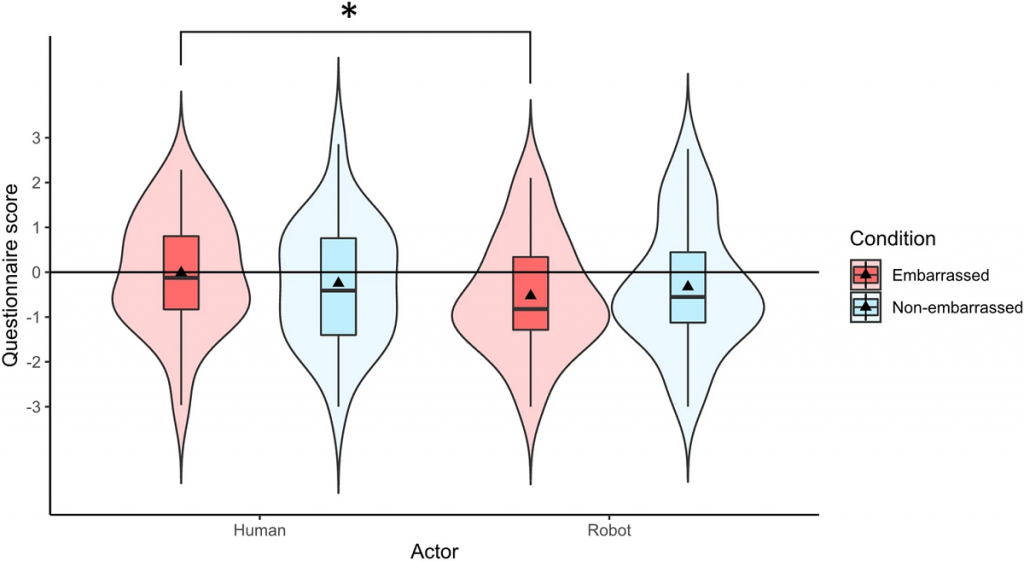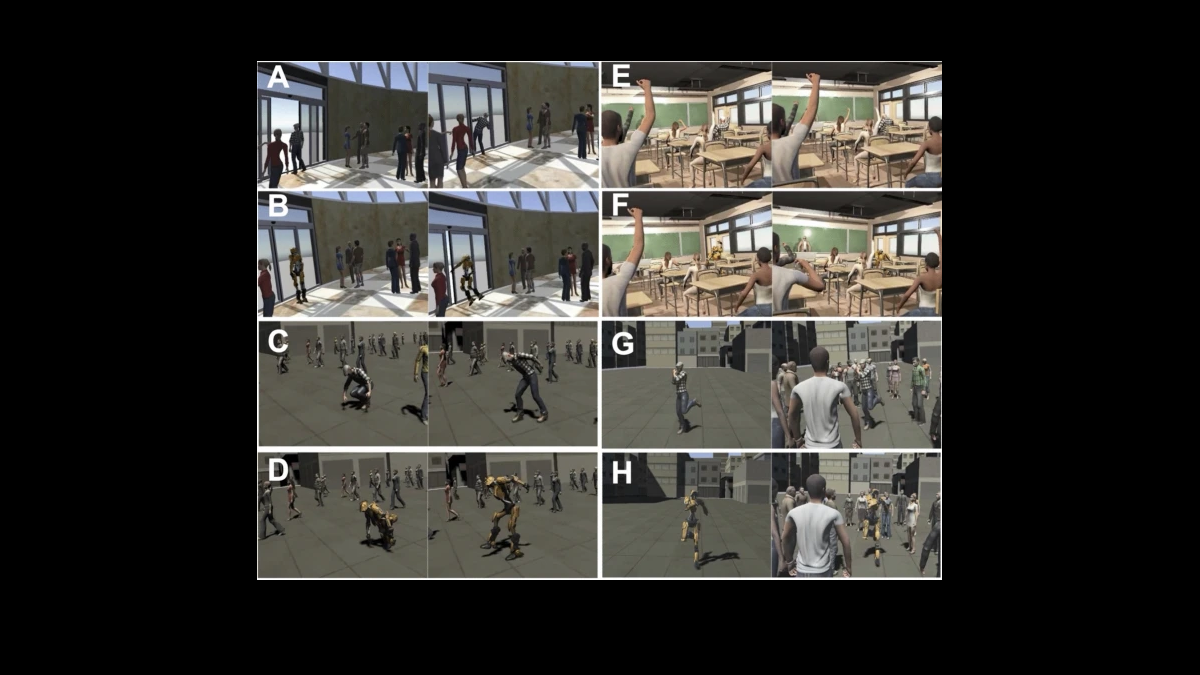A new virtual reality study published in the journal Scientific Reports has found that humans can feel embarrassed for ‘robots’ that are in embarrassing situations.
In the study named ‘Empathic embarrassment towards non-human agents in virtual environments,’ researchers used subjective ratings and physiological measurements to assess how much empathy humans feel for robots – a term for non-human agents such as Non-Player Characters (NPCs) or autonomous avatars – in embarrassing situations. Empathic embarrassment is the ability to share in the emotional experience of someone else’s embarrassment.
According to the Toyohashi University of Technology, the researchers placed participants in virtual environments where human and robot avatars experienced mildly embarrassing or non-embarrassing situations. These situations were designed to elicit feelings of mistake or discomfort towards robots.

Cognitive empathy vs. empathic embarrassment
The researchers investigated two types of empathy: empathic embarrassment and cognitive empathy. Cognitive empathy is the ability to understand and estimate the feelings of another person. Participants were then asked to rate their own empathic embarrassment and that of the avatars in each scenario on a 7-point Likert scale.
During the study, participants’ physiological reactions were also measured using skin conductance response (SCR). According to the university, SCR is a well-established indicator of emotional arousal, and it provides insights into the intensity of emotions.
Participants reported experiencing both cognitive empathy and empathic embarrassment for both human and robot avatars in embarrassing situations. However, participants experienced significantly more cognitive empathy and empathic embarrassment in embarrassing scenarios, regardless of whether the avatar was human or robotic.
Applying non-human study to NPCs in games
There’s a good chance that this non-human research could apply to NPCs in games in several ways. For example, game developers could use this research to create NPCs that are more realistic and believable in their emotional responses. This could make games more immersive and engaging for players.
Also, game developers could use this research to create NPCs that are more empathetic towards players. This could lead to more meaningful and emotionally resonant relationships between players and NPCs in games. Some NPCs could even go as far as help players to learn and grow.
However, the study showed that participants experienced more cognitive empathy for human avatars than for robot avatars. Also, participants’ skin conductance responses showed that they were more emotionally aroused by human avatars than by robot avatars.
Isa Muhammad is a writer and video game journalist covering many aspects of entertainment media including the film industry. He's steadily writing his way to the sharp end of journalism and enjoys staying informed. If he's not reading, playing video games or catching up on his favourite TV series, then he's probably writing about them.



































